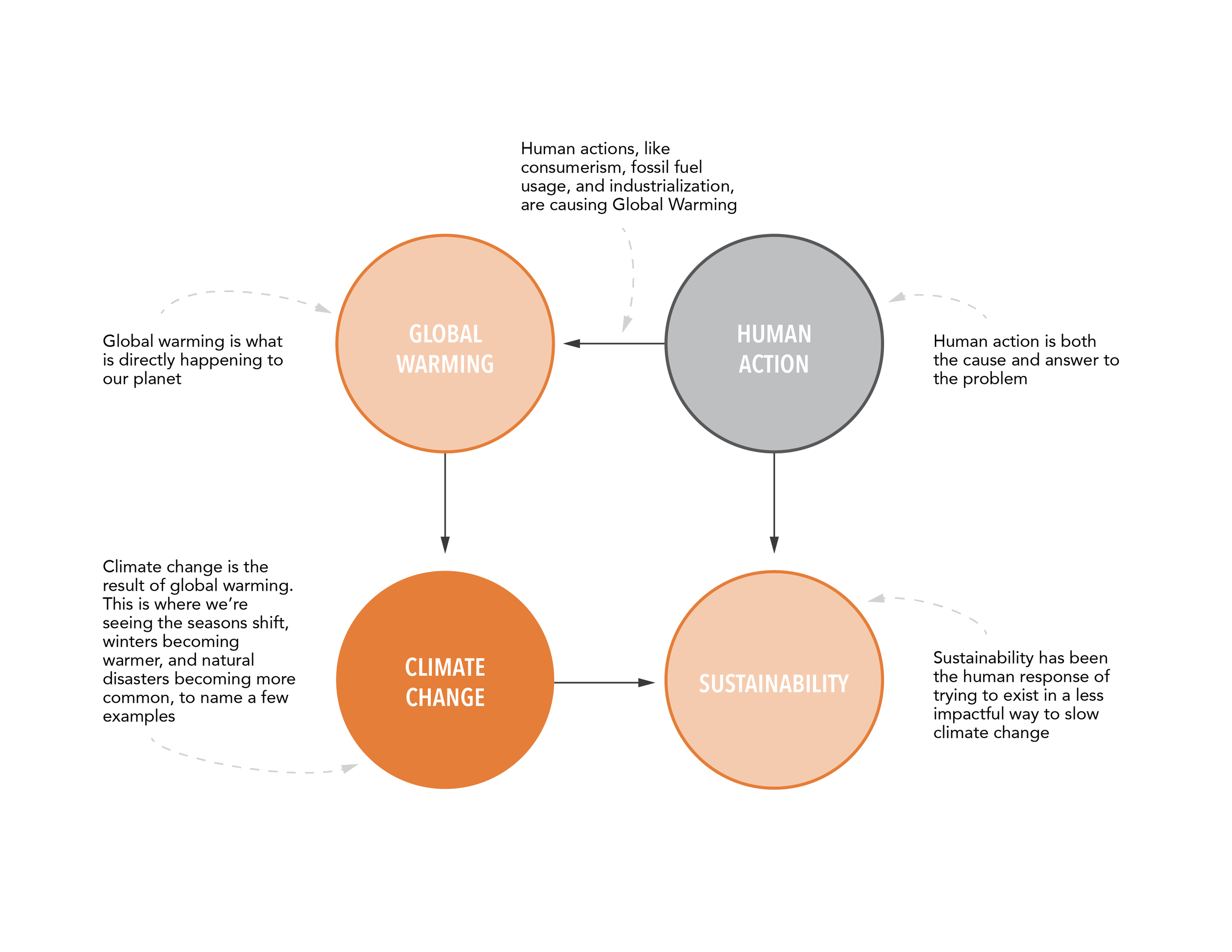Working across our diverse client range at OSB, something we see time and time again is people talking about nearly identical ideas but using different words. One group may be a corporation and the other a research institute with roots in systems work. While they may seem like polar opposites, they use similar approaches and have similar concerns but would never realize it due to the different vocabularies.
One of the benefits of being generalists, as we all are at OSB, is that we are comfortable entering these spaces and acknowledging that we have limited understanding of certain terminology. This allows us to constantly grow our knowledge and be able to connect ideas across industries.
Keeping all of this in mind, we felt the most appropriate way to start our series on sustainability was to examine terminology. We are bombarded daily with words like ‘sustainability’, ‘green’, ‘eco-friendly’ among many more. It’s easy for all of them to blend together and be used synonymously, yet upon closer examination, this leads to instances of green-washing (another term to define) instead of actual action and progress.
So let’s start with the basics…
We’re encouraged to live sustainably, shop sustainably, conduct our businesses sustainably, but what does ‘sustainable’ mean, exactly?
Well, there isn’t necessarily one clear answer. Different groups think about the term differently. In academia, sustainability is often used to look at how much capacity and natural resources the earth has to sustain life. In government settings, we often see and hear the use of sustainability as it relates to “sustainable development goals, which are aimed at improving life on earth, especially in poor countries.” (NPR) In the corporate world, it can mean simply having a sustainable business practice, which isn’t necessarily about the environment, but sometimes deceivingly about the ability to maintain practices long-term. For consumers and general citizens, the excess of sustainably-marketed products, actions, and promises can falsely ease our conscience of being more environmentally friendly.
Because sustainability can mean everything, it can also mean nothing. This is where our problem lies. We don’t know what it means to truly be sustainable. It’s easy to slap the term on anything and everything without any actual action to support it. Action is the differentiator that we at OSB want you to think about when evaluating the reality of sustainability. Action is the inciting force for this whole conversation around climate change.
We encourage you to think about sustainability in two parts:
It’s a movement that questions our human impact on the environment. (Gulcin Per)
It’s an action that balances the needs of today without compromising the needs of the future. (The World Energy Foundation)
By looking at it this way, it encourages us to examine the big picture, to look at all the consequences of our actions long term, and to see the power in the collective (whether that be individuals, nations, businesses, etc). It forces us to see the roles we play as individuals, communities, businesses, nations, and humanity in climate change.
We know this barely scratched the surface of this complex issue, but it’s important to address as we dive into the world of sustainability. In future blogs, we will always make a point to define terminology, regardless of how common it seems.
Writing by Sophie Becker, Design Innovation Strategist and Emily Zheng, Public Health Innovation Analyst






